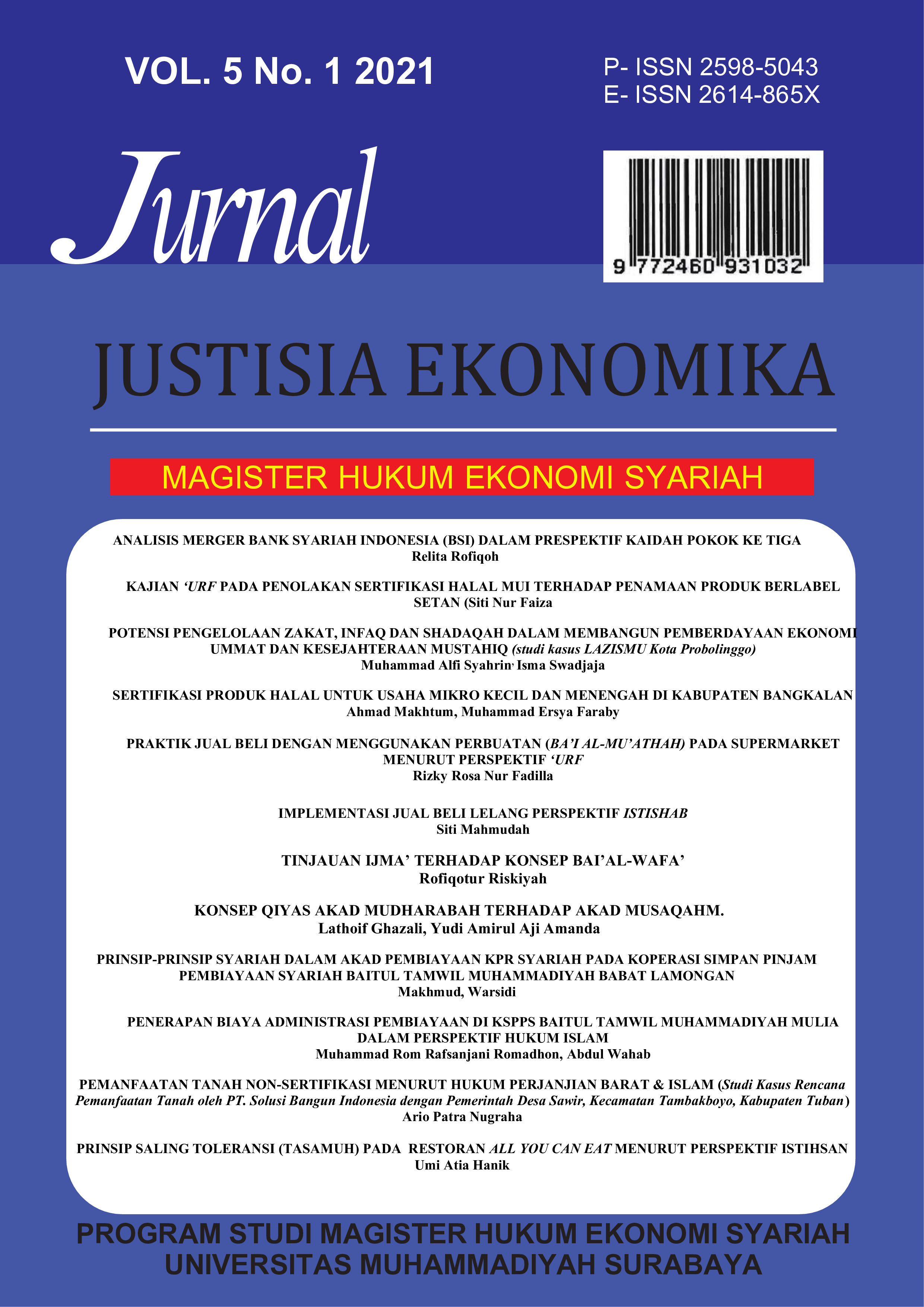PEMANFAATAN TANAH NON-SERTIFIKASI MENURUT HUKUM PERJANJIAN BARAT & ISLAM (Studi Kasus Rencana Pemanfaatan Tanah oleh PT. Solusi Bangun Indonesia dengan Pemerintah Desa Sawir, Kecamatan Tambakboyo, Kabupaten Tuban)
DOI:
https://doi.org/10.30651/justeko.v5i1.8767Abstract
This research discusses about the status of land rights whose ownership has been not clear yet, which is the object of cooperation in utilization between the Sawir Village Government and PT Solusi Bangun Indonesia Tbk, according to the laws and principles in force in Indonesia. The problems that will be answered in this study include: (1) What is the status of land rights that are used as objects of utilization between the Sawir Village Government and PT Solusi Bangun Indonesia Tbk? (2) How is the land use cooperation between Sawir Village Government and PT Solusi Bangun Indonesia Tbk according to Western and Islamic Covenant Law? This type of research is a qualitative research, while the approach used is an empirical juridical approach, namely legal research that functions to see the laws that apply in the community. The results of this research are: (1) According to the Sawir Village Government, the land belongs to the Village Government as evidenced by the existence of a field map in the village C book. Meanwhile, according to the Tuban Regency Government, the Tuban Regency National Land Agency, and PT Solusi Bangun Indonesia Tbk, the land ownership is not registered and cannot be claimed as an asset of Sawir Village. According to Law Number 5 of 1960 concerning Basic Regulations on Agrarian Principles article 19 paragraph 1, the land cannot be referred to as land belonging to Sawir Village until the certification is completed on behalf of the village. And to get the ownership certificate, the Sawir Village Government must register or submit an application for ownership of the land to the National Land Agency of Tuban Regency. (2) According to the Islamic Covenant Law, the status of the land does not meet the requirements as an object of the agreement. This is because the land has not been legally proven to be owned by the Sawir Village Government. Whereas one of the main requirements for the validity of an agreement is that the object of the agreement must be legally owned by one of the parties who entered into the agreement.
Keywords: Utilization, Non-Certified Land, Covenant Law, Customary Rights
Downloads
Published
How to Cite
Issue
Section
License
HAK CIPTA
Penulis yang mengirimkan artikel dalam jurnal Justisia Ekonomika harus memahami dan menyetujui persyaratan tentang hak cipta jurnal Justisia Ekonomika sebagai berikut:
1. Hak Cipta tulisan / artikel yang diterbitkan di jurnal Justisia Ekonomika otomatis menjadi hak pengelola jurnal atau publisher
2. Meskipun Hak Cipta atas tulisan yang telah diterbitkan di jurnal Justisia Ekonomika adalah menjadi haknya publisher, tetapi penulis masih mempunyai hak untuk : a). Penulis boleh meng-upload di repository kampus, b). Penulis boleh meng-upload di webnya sendiri, c). Penulis boleh meng-upload di google schoolar, orchid dan sinta
LISENSI
Lisensi atas tulisan / artikel yang diterbitkan di jurnal Justisia Ekonomika adalah menggunakan Creative Commons dengan atribusi CC-BY-NC 4.0






















